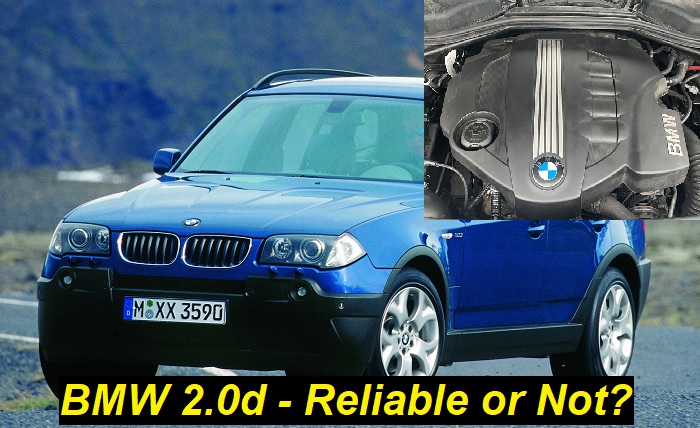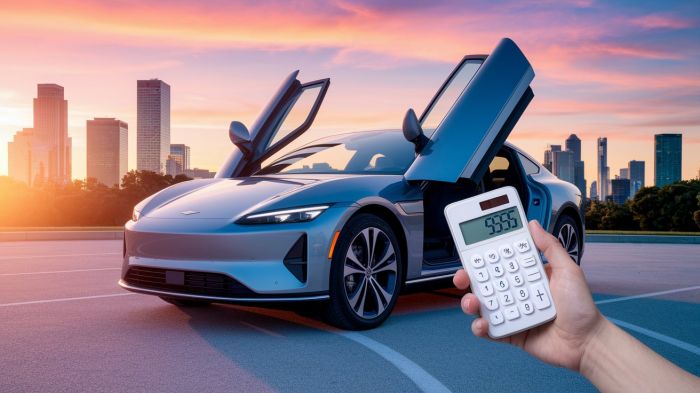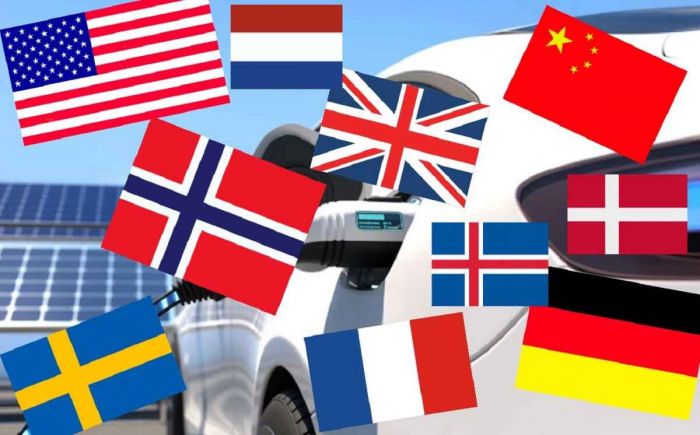When you are talking about BMW, you shouldn't care too much about longevity. These vehicles are made for performance and it's not a secret. We know some X5M engines that couldn't last even 40,000 miles, but how good they are! But are there any practical engines in the BMW lineup? Today, we are going to talk about the 2.0d engine that is not so popular in the US but is one of the key engines in Europe.
The 2-liter diesel engine can be whether sporty or reliable (depending on the settings). This is a cool fact that we have to explain later in the article. Also, this engine is extremely economical compared to the more popular gasoline versions. But the bad news is that there are a lot of versions of the 2-liter diesel engines in BMW cars, so we'll have to focus on only some of them.

Key facts and my opinion about the engine
- Production years: 2014-now
- Average lifespan of B47: 210,000-230,000 miles
- Fuel supply type: Common Rail
- Power range: 116-231 hp
- Fuel efficiency: excellent
- Engine block material: aluminum
- Engine reliability score: high
- The most common problems: AGR (EGR) problems, intake contamination and power loss, timing chain issues.
Has BMW sold cars with 2.0d in the USA?
Yes, BMW sold some cars with diesel engines with 2 liters of displacement. For example, you can find the X3 or the X5 with diesel engines, also the 3-Series sedan and the 5-Series sedan were sold with the diesel engines. But now, the entire lineup of BMW consists of purely gasoline, hybrid, or electric cars. No diesel versions are available for clients.
One of the reasons is that Volkswagen had a lot of problems with its 2-liter diesel engine and its emissions. After that, America started to get rid of European diesel units and only approved gasoline engines.
But the main reason for the absence of new diesel cars from BMW in America is poor sales. People just don't want those problems that usually occur with diesel engines in winter and at high mileage. And for BMW it's more than just important to know.
2.0d engines - are they actually good?
It depends on what you understand under "a good engine". If you are talking about acceleration, speed, and performance, then yes, these engines are good. If you talk about reliability and cost of maintenance, we've seen a lot of better engines.
The most obvious comparison for the 2.0d engines from BMW is the 2.0 TDI engine from Volkswagen that was installed in VW Jetta, VW Passat, VW Golf, and some other vehicles. Also, these engines were used in Audi cars. And they are much more practical than 2.0d.
Though, we can say some obvious advantages of the BMW 2.0d engines:
- Performance. These engines were built to surprise their owners with acceleration and dynamics. You will never find the same emotions in any other diesel engine. BMW units are made for sports driving and they will amaze you.
- Fuel consumption. These engines are very economical. Some cars equipped with the 2-liter diesel engines by BMW can get about 50 mpg on the highway and it's just the same as the most modern hybrid (gasoline-electricity) cars get.
- Top speed. These engines are set to be sporty. They can accelerate fast and they have wonderful top speed. This means that the engines are really wonderful for those who don't want to know any limits and want to drive at the top of the vehicle's abilities.
- Sound. The 2.0d engines are not vibrating and don't create any poor sound like many other diesel engines do. You will not guess that you are standing near a diesel car thanks to the cutting-edge mufflers and other technologies making these engines silent and soft-sounding.
- Towing capacity. The diesel engine by BMW saved the most important advantage of all diesel engines - the towing capacity. If you own an X3 with this engine, you are able to tow big trailers with no damage to your engine and transmission.
But here, the positive characteristics end. Unfortunately, in this article, you will not read anything good about the 2.0d engine than this list. We actually love the unit and we appreciate that BMW made it much more pleasant to drive than the 2.0 TDI, for example, in Volkswagen and Audi. But anyway, the number of problems is very impressive.
We'll not be talking about some certain model of this engine. Everything we say today can be applied to all 2-liter diesel engines that have been offered by BMW within recent 12 years. And some facts will be surprising to you.
What's the longevity of the 2.0d engines?
These engines offer good life expectancy on paper. You can find BMW lovers who have been driving their cars equipped with 2-liter diesel engines for more than 200,000 miles. The manufacturer says that the life expectancy of this engine is about 140,000 miles. But we should tell you that 100,000 miles are enough. After this mark, the engine will take more money from your pocket than you expect.
The longevity should be estimated with the understanding of how much it costs to maintain the engine after a certain mileage. And if you count it all up, the BMW engines are not good to own at all. But before they hit the 100,000-mile mark, they are relatively OK. After that, they are extremely expensive.
There is nothing so bad happening with this engine, but it costs a fortune to repair even a small problem. So, let's just see what problems can come with high mileage.
What are some common problems with the 2.0d engines in BMW?
Well, this section could be the longest one in this article. But we tried hard and reduced the list of problems to the very common issues that basically happen with every 2-liter diesel engine made by BMW since 2014. We are still surprised with the number of problems and we spent a lot of time categorizing these problems that are complained about in reviews.
Unfortunately, this doesn't allow us to say that this engine is reliable. It has both minor and major problems that start attacking you after the engine hits the 100,000-mile mark or even sooner than that.
Here are some of the common issues you must know about:
- AGR valve problems. This is the same as EGR in other cars. The AGR valve tends to get stuck in an open position. This may lead to problems with the intake manifold (cracks in the manifold) and also to problems with idling and accelerating. BMW even had a recall in 2015-2016.
- Intake manifold problems. Very often it gets clogged and dirty. Because of this, the engine loses power and becomes really weak. Also, this may lead to problems with fuel consumption. And most sadly, it can kill the fuel injectors that cost hell much.
- Timing chain problems. The 2.0d engines are well-known for chain stretching at 100,000 miles. This will lead to the need to replace the chain. And for this, your mechanic will need to take the engine off the vehicle. Can you imagine the price? And the parts won't be cheap, too.
- Common Rail problems. Fuel injection in diesel engines is another problem. If you use bad fuel, don't buy new fuel filters every year, or just drive your BMW in a dusty area, your fuel injectors will be clogged and sometimes even broken. This will lead to huge expenses.
- Particulate filter problems. Without this filter, the BMW will not pass the fog test. But after 100K miles, this filter will cause so many problems. You will have to replace it, and again, the prices are just insane.
Well, this engine will not fall apart and it will not cause really big conventional problems. But some minor issues that it can have are worse than major problems of other engines. A stretched chain will cost you thousands of dollars to replace because the construction of the engine is not practical for repairs and servicing.
Even regular oil and filter changes will not be cheap. If you want this engine to last longer, you should buy exclusively the original parts and liquids. They cost a lot but at least they prolong the life expectancy of the engine. Nearly every visit to a car shop will eventually become a financial disaster for you if you have a 2.0d BMW with over 100K miles on it.
Final words
We are not fans of BMW so we can fairly talk about these cars. Yes, we love the way these vehicles go. We like how they accelerate and we adore the sound of the engine. But it's not enough for us to make us buy this car. When you look at the number of problems and the prices for dealing with these problems, you understand that these BMW cars are certainly not your choice.
About the authors
The CarAraC research team is composed of seasoned auto mechanics and automotive industry professionals, including individuals with advanced degrees and certifications in their field. Our team members boast prestigious credentials, reflecting their extensive knowledge and skills. These qualifications include: IMI: Institute of the Motor Industry, ASE-Certified Master Automobile Technicians; Coventry University, Graduate of MA in Automotive Journalism; Politecnico di Torino, Italy, MS Automotive Engineering; Ss. Cyril and Methodius University in Skopje, Mechanical University in Skopje; TOC Automotive College; DHA Suffa University, Department of Mechanical Engineering






Add comment